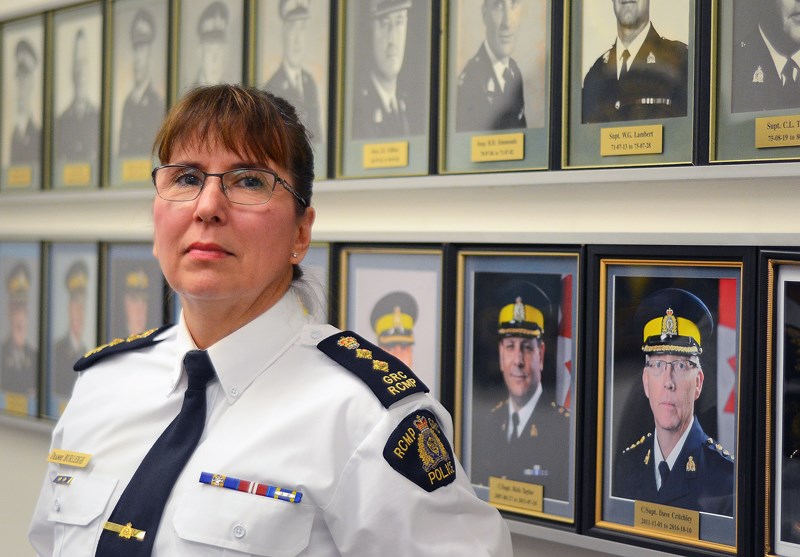Burnaby RCMP has spearheaded a new approach aimed at getting police and other agencies out of their silos and around a common table to better deal with risks to individuals, families and the community.
The Burnaby Mobilization and Resiliency Table (BMART) has met weekly at city hall since May 23.
At the table are the RCMP, the Ministry of Children and Family Development, Fraser Health, the Burnaby school district, Progressive Housing Society, Elizabeth Fry Society, the fire department and other local agencies.
They meet to deal with situations that present an “acute elevated risk” of harm, victimization or criminality and need the attention of more than one agency.
“It’s going for the roots versus the leaves,” Chief Supt. Deanne Burleigh tells the NOW. “You can deal with a homeless individual and arrest them for petty theft or littering or loitering over and over and over, but it’s not a policing issue now that they’re homeless, so we need other people at the table to work together.”
Once the table figures out which agencies are best suited to de-escalate or mitigate the situation, representatives are dispatched to wherever they’re needed.
“We go right to the situation – the individual, the family, whatever it happens to be,” says Cpl. Abby Yep, Burnaby’s crime prevention and victim services liaison, who was tasked with getting the initiative off the ground. “If that means we have to track them down because they happen to be homeless, we’ll literally go out and find them wherever they are with those agencies.”
Assistance can come in many forms depending on which organizations respond.
Sometimes it’s as simple as helping an individual in crisis apply for income assistance.
“Right now, it’s done online,” Burleigh says. “Well, these people whose worlds have crumbled don’t have 'online' because they can’t afford it or don’t have the device or something else, so we bring that to them, and they’ll apply right there for them.”
Because the intervention is about assistance and not enforcement, the response has generally been positive, she says.
Right to privacy
Burnaby’s new hub approach is based on a model pioneered in Prince Albert, Sask. in 2011 and adopted by police forces across Canada, including the Surrey RCMP in 2015.
Getting agencies to work together to address risks in the community might seem like a no-brainer, but Burleigh says protecting people’s privacy has been a major obstacle in the past.
“An individual has a right to privacy regardless of whether they’re having negative contacts with police or they’re in a health crisis,” she says.
Prince Albert, however, developed a method to balance people’s right to privacy with the risk they present to themselves or others.
It involves four “filters.”
When a case is first brought forward, it’s presented as a collection of risk factors – a situation with no names or other identifying information.
“A young individual has been missing school and has had several negative police contacts in the last little while, and we’ve also noticed bruising on the arms,” says Burleigh, describing a hypothetical scenario.
The table first has to decide whether the situation presents an “acute elevated risk” thus warranting further discussion by some of the agencies at the table.
In Burleigh’s example, police, the school district and the Ministry of Children and Family Development might need to get involved.
With each “filter,” more information about the individuals involved is shared, bringing some agencies on board and sifting out those with no role to play and no need to know.
'The last resort'
About 45 representatives from organizations working in Burnaby were trained in the new approach this spring, and they’ve met weekly ever since.
Burleigh said it made sense for Burnaby RCMP to spearhead the initiative.
“When there’s nowhere else to go, police are the last resort,” she said, “but by the time someone’s having a negative contact with police, there’s usually been cries for help; there’s usually been ‘We need housing. We need health care' or 'My child’s in mental health crisis,’ and there hasn’t been help. Either they didn’t know where to go or the service wasn’t available or it was after hours, so the call came to us. You see these acute situations and crisis situations on a daily basis. What we’re hoping at the table is to address those before they become chronic – or deadly.”



